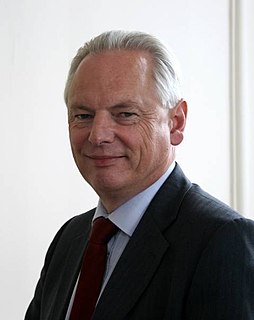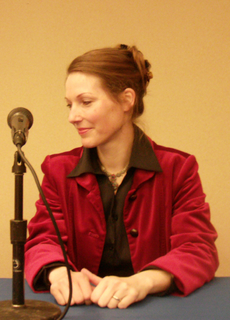A Quote by Richard Posner
But Friedman seemed to share Friedrich Hayek's extreme and inaccurate view that socialism of the sort that Britain embraced under the old Labour Party was incompatible with democracy, and I don't think that there is a good theoretical or empirical basis for that view. The Road to Serfdom flunks the test of accuracy of prediction!
Related Quotes
. . I think the Adam Smith role was played in this cycle i.e. the late twentieth century collapse of socialism in which the idea of free-markets succeeded first, and then special events catalyzed a complete change of socio-political policy in countries around the world by Friedrich Hayek's The Road to Serfdom.
Ever read any [Friedrich] Hayek? He's great. The Road To Serfdom is like... I'm not a big political-science reader, but I actually dog-eared my copy. I ended up going back through it and writing a précis, I was so impressed by this book. It's all about what happens when government tries to make everything right.
Friedrich Hayek made the point that one of the keystones of socialism is the denial of individual responsibility. Thus, the crusade for socialism always included attacks on individual responsibility. For if individuals do not have free will, and are not responsible for their actions, then their lives must be controlled somehow - preferably by the state - according to the socialists. They must be regulated, regimented and controlled - for their own good.
Democracy cannot survive where there is such uniformity that everyone wears exactly the same intellectual uniform or point of view. Democracy implies diversity of outlook, a variety of points of view on politics, economics, and world affairs. Hence the educational ideal is not uniformity but unity, for unity allows diversity of points of view regarding the good means to a good end.
The ultimate cause of the October Crisis was the ideological embrace of Milton Friedman's warped but still dominant view that "the only social responsibility of business is to make a profit for its shareholders," and until that socially and economically counterproductive - and empirically, legally and ethically inaccurate - view is corrected, we will continue to have the increasing and more intense crises of global capitalism that we have seen recur with ever greater frequency over the past forty years. Sadly but clearly, the lessons have still not been learned.
Even as I pursued a doctorate in the history of ideas in my native Denmark, I realized I had neither the encyclopedic training nor the passion for cool logic - not to mention the nerve - to follow in the footsteps of classical liberal philosophers and economists such as Robert Nozick, Friedrich Hayek, and Milton Friedman.
The real irony is that the view of infinity as some forbidden zone or road to insanity - which view was very old and powerful and haunted math for 2000+ years - is precisely what Cantor's own work overturned. Saying that infinity drove Cantor mad is sort of like mourning St. George's loss to the dragon: it's not only wrong but insulting.
Even philosophies who have denounced pseudosciences like psychoanalysis, have condoned pseudoscientific economic theories like neoclassical microeconomics. It is far safer and easier to criticize Freud and Jung than to criticize Milton Friedman and Friedrich Hayek, because the latter are backed by political movements whereas the former are not.
Certainly I see the scientific view of the world as incompatible with religion, but that is not what is interesting about it. It is also incompatible with magic, but that also is not worth stressing. What is interesting about the scientific world view is that it is true, inspiring, remarkable and that it unites a whole lot of phenomena under a single heading.
The problem of peaceful transition to socialism, we do not discuss it as a theoretical question. But in America it is very difficult, and it is nearly impossible. That is why specifically in America we say that the road to the liberation of peoples, which will be the road of socialism will go through bullets in almost all countries.



































